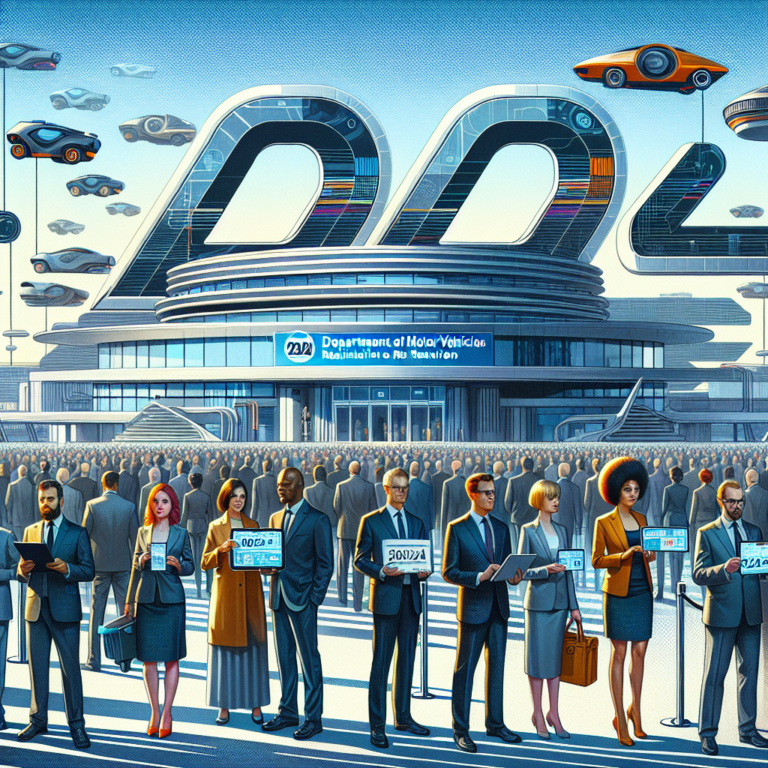From Renewals to Registrations: 2024 DMV Changes Explained
As we step into 2024, residents across the United States will begin to notice some significant changes at their Department of Motor Vehicles (DMV). These adjustments are aimed at streamlining services and enhancing user experience, ultimately making interactions with the DMV more efficient and user-friendly. Here’s a comprehensive overview of the primary changes regarding renewals and registrations that you should be aware of.
1. Transition to a Fully Digital Platform
One of the most significant changes in 2024 is the DMV’s aggressive push towards digitization. Many states are implementing fully online platforms for renewals and registrations. This means residents can complete many tasks without setting foot in a DMV office. From renewing your driver’s license to registering a new vehicle, the entire process will be available at your fingertips.
2. Increased Use of Mobile Applications
To complement the online services, several DMVs are releasing or enhancing mobile applications. These apps will allow users to:
- Manage Renewals and Registrations: Users can receive alerts when their documents are due for renewal and complete transactions directly through their phones.
- Schedule Appointments: To reduce wait times and improve service efficiency at physical locations, users can book appointments for in-person services.
- Access Digital IDs: Some states will allow residents to carry digital versions of their driver’s licenses or ID cards, which can be convenient for identification purposes.
3. Enhanced Identification Requirements
As part of ongoing efforts to improve security and compliance, 2024 will see changes to identification requirements for renewing licenses and registering vehicles. Applicants may need to provide additional proof of residency or identity, such as utility bills or bank statements. This change aims to curb identity theft and ensure that every document is authentic.
4. Streamlining of Fees
DMVs across various states are re-evaluating their fee structures to make them more transparent and proportionate. In 2024, some states are expected to reduce their registration and renewal fees or offer discounts for early renewals. Additionally, there may be new payment plans introduced, allowing for staggered payments for larger fees, so individuals can manage their finances more effectively.
5. E-Notifications and Reminders
To help residents keep track of their document status, the DMV will enhance its e-notification systems. This year, individuals can opt-in to receive timely reminders via email or SMS when their renewals are due, or registrations are expiring. This service aims to reduce late renewals and the associated fines, helping residents stay compliant.
6. New Eco-Friendly Initiatives
In line with the growing focus on sustainability, many DMVs are rolling out eco-friendly initiatives in 2024. This includes providing options for digital certificates of title and registration, reducing paper waste. Additionally, some states are incentivizing the registration of electric or hybrid vehicles through reduced fees or rebates, aligning with broader environmental goals.
7. Alternative Service Locations
Recognizing that not everyone can access traditional DMV offices, some states are expanding service offerings to alternative locations. This includes partnering with community centers, libraries, and even grocery stores to provide registration and renewal services in more convenient settings. This change is particularly beneficial for underserved communities that may lack easy access to a DMV.
Conclusion
As we embrace 2024, these changes at the DMV reflect a broader trend towards modernization and convenience in public services. Whether you’re renewing your driver’s license, registering a new vehicle, or simply checking your status, the updates are designed to make your experience smoother and faster. Residents are encouraged to familiarize themselves with these new processes and take advantage of the digital resources available to make their DMV interactions as efficient as possible. With these advancements, the DMV is not just changing its procedures; it’s transforming into an organization that prioritizes customer satisfaction and operational excellence.


